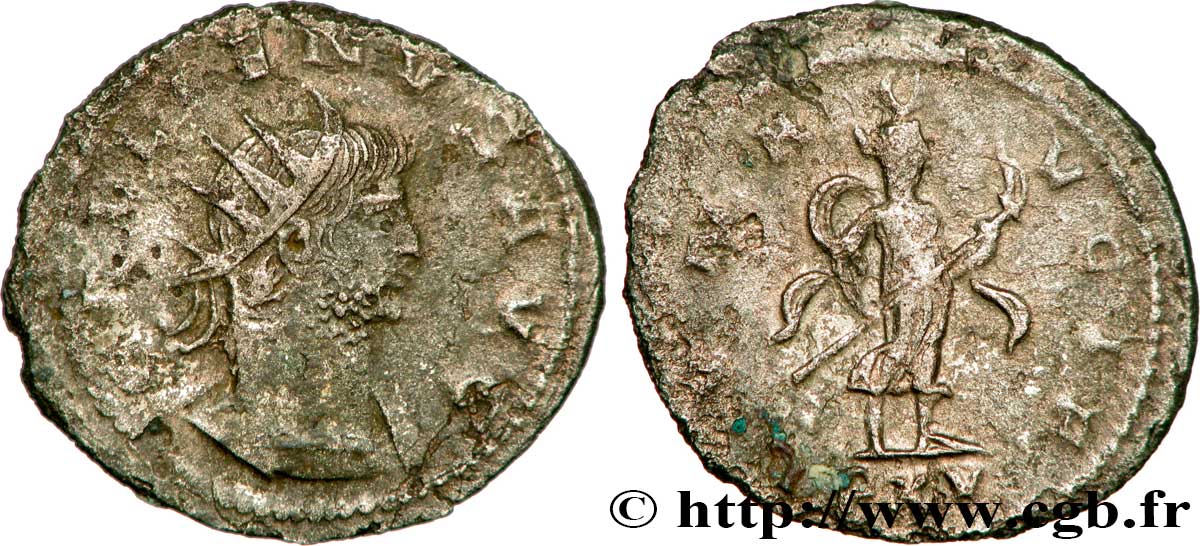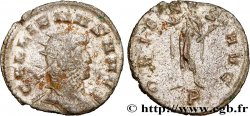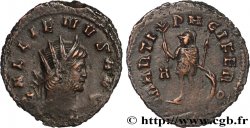brm_222454 - GALLIENUS Antoninien
67.00 €(Approx. 71.69$ | 57.62£)
Quantity
Add to your cart

Type : Antoninien
Date: 266-267
Mint name / Town : Antioche
Metal : billon
Millesimal fineness : 30 ‰
Diameter : 19,5 mm
Orientation dies : 5 h.
Weight : 3,36 g.
Coments on the condition:
Exemplaire sur un petit flan ovale, bien centré avec les grènetis visibles. Beau portrait. Usure régulière au revers. Patine grise, légèrement brouillée
Predigree :
Cet exemplaire provient de la collection de Keith Emmet (spécialiste d’Alexandrie)
Obverse
Obverse legend : GALLIENVS AVG.
Obverse description : Buste radié et cuirassé de Gallien à droite drapé sur l’épaule gauche, vu de trois quarts en avant (B01).
Obverse translation : “Gallienus Augustus”, ( Gallien auguste).
Reverse
Reverse legend : LVNA L-VCIF/ -|-// PXV.
Reverse description : Diane, coiffée d’un croissant de lune, drapée, marchant à droite, tenant une longue torche transversale des deux mains .
Reverse translation : “Luna Lucifera”, (La Lune qui apporte la lumière).
Commentary
Avec son argenture superficielle. Rubans de type 3 aux extrémités bouletées.








 Report a mistake
Report a mistake Print the page
Print the page Share my selection
Share my selection Ask a question
Ask a question Consign / sell
Consign / sell
 Full data
Full data



